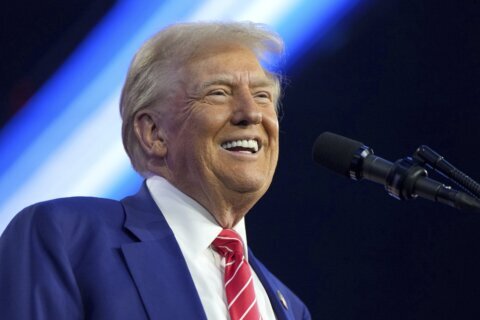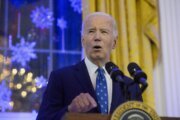Ahead of the highly anticipated meeting on Wednesday between U.S. President Joe Biden and Chinese leader Xi Jinping, Chinese state media have taken a new tone toward the U.S. with less negative coverage, calls for a return to warmer ties and stories of Americans with positive connections to the country.
The messaging follows several years of unprecedented tensions between the two countries over issues including trade and technology, the status of Taiwan and Hong Kong and the origins of COVID-19.
Chinese media have focused on a recent visit by members of the Philadelphia Orchestra marking the 50th anniversary of its history-making trip to China that helped build then-fledgling U.S.-China ties, and on another visit by members of the Flying Tigers, a group of American military pilots who helped China fight Japan in World War II.
“The Chinese people will never forget an old friend, and that’s an important message we want to send to the American people,” the official Communist Party newspaper People’s Daily said in its overseas edition on Wednesday.
In recent days the official Xinhua news agency carried a five-part series on U.S.-China relations which called for the countries to “meet each other halfway” and “work together to return to the path of healthy and stable development.”
But it also urged the U.S. to follow through on agreements made by Biden and Xi when they met in Bali last November.
“Only if we return to Bali, can we look forward to San Francisco,” it said.
The two leaders agreed in Bali on areas of cooperation including tackling climate change and maintaining global financial, health and food stability. China says the U.S. has deviated from pledges to “not seek out a new Cold War,” to “respect China’s system” and “not oppose China through strengthening its relationships with allies.”
“Only by handling well U.S.-China relations can the well-being of the two peoples increase, the progress of human society be promoted, and can there be a contribution to the peaceful development of the world,” the People’s Daily said in an op-ed on Wednesday. Op-eds in state media are widely seen as reflections of official policy.
Even the nationalistic and confrontational Global Times newspaper called for the two countries to cooperate in an op-ed Wednesday.
Chinese state media have often focused heavily on negative coverage of the United States in recent years. During the Black Lives Matter protests in the United States in the summer of 2020, Chinese media provided extensive coverage of violence at protests and clashes with police.
The critical coverage of the U.S. and other Western countries aims to show how well China is doing in comparison, said David Bandurski, executive director of the independent China Media Project. “Everything is negative in the U.S. (according to Chinese media) … and this is the flip side of the bigger picture of the constructing of legitimacy by Xi Jinping in his third term,” he said.
During the coverage of the Black Lives Matter protests, relations between the countries were at a low point, with China defensive over U.S. accusations about the origin of COVID-19.
Ahead of the Biden-Xi talks at a country estate near San Francisco, state media have not played up the city’s homelessness problem, although some social media users have posted photos of homeless people urinating and sleeping in the streets along with commentary on how dangerous the city can be.
In one video on Douyin, the Chinese version of Tiktok, a young Chinese man living in San Francisco showed how he kept two bank cards in separate locations, one in his bag and one in his pocket. The point? “If I was robbed, I’d still have one bank card left,” he said.
He also showed his sneakers, saying if he ran into trouble, “I can run a bit faster.”
The new language of cooperation with the U.S. in state media mirrors what China has said in recent months as it has worked to mend strained relations with Australia and some European countries, Bandurski said.
Despite the change in tone, few expect substantial changes to the overall direction of relations between the two countries.
“There’s no fundamental change, they have marked you as a competitor,” said Sima Nan, an international affairs commentator with more than 3 million followers on Weibo, a popular social media app.
___
AP researcher Wanqing Chen in Beijing contributed to this report.
Copyright © 2024 The Associated Press. All rights reserved. This material may not be published, broadcast, written or redistributed.







